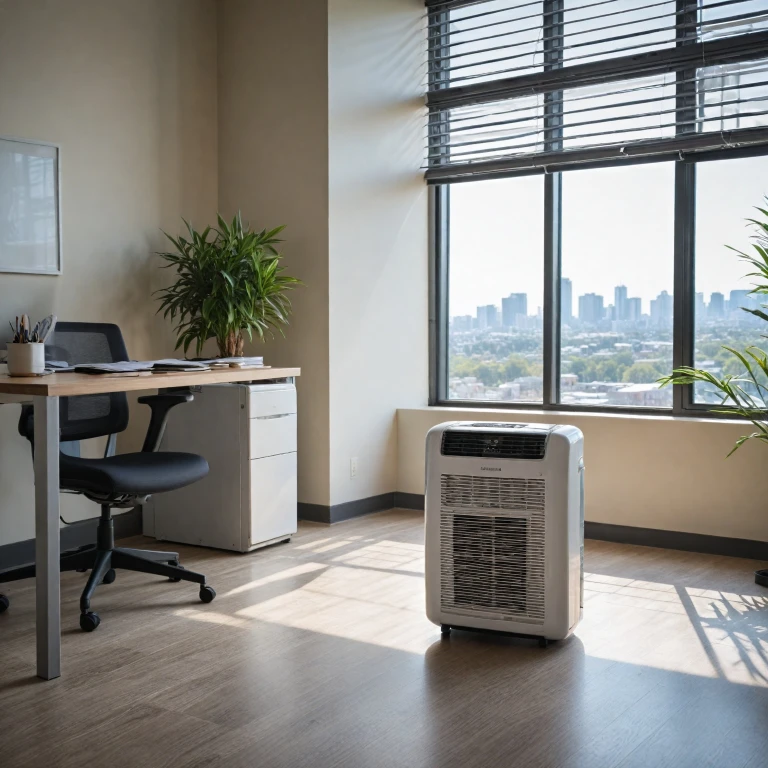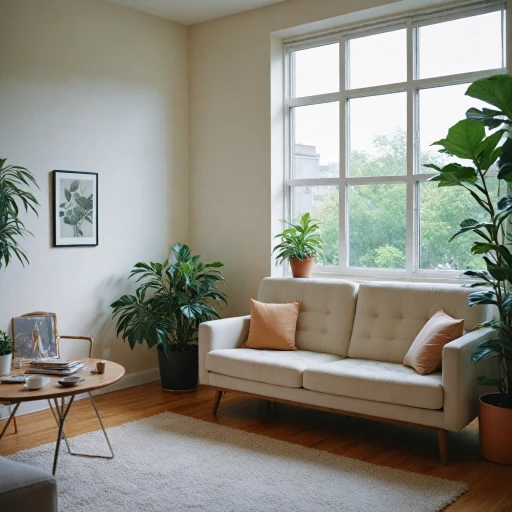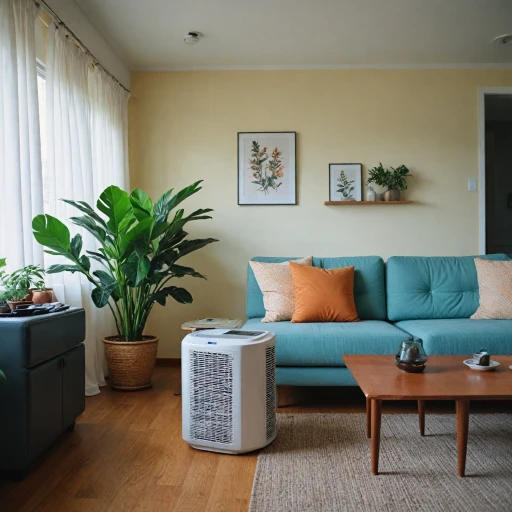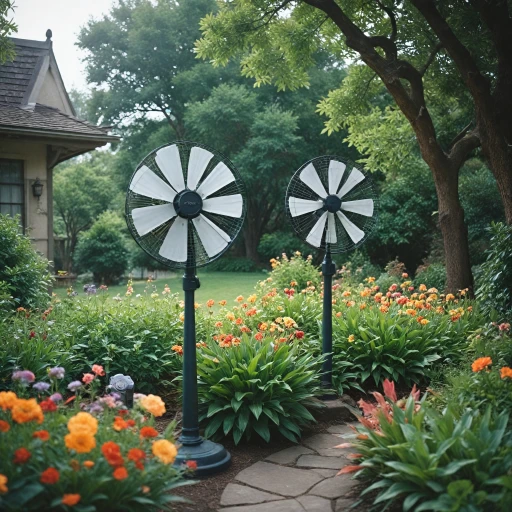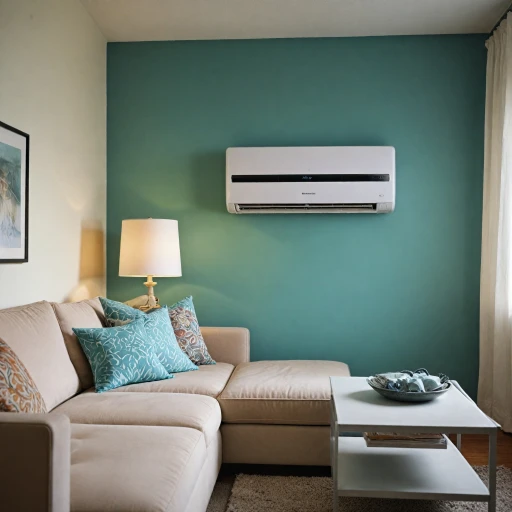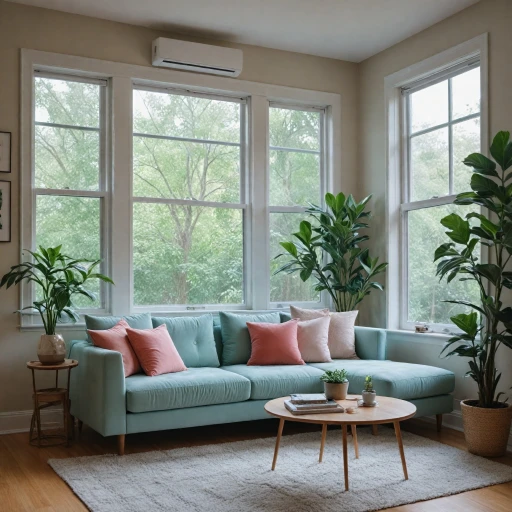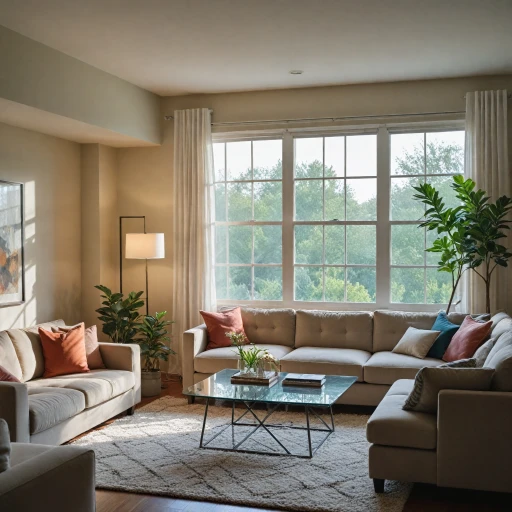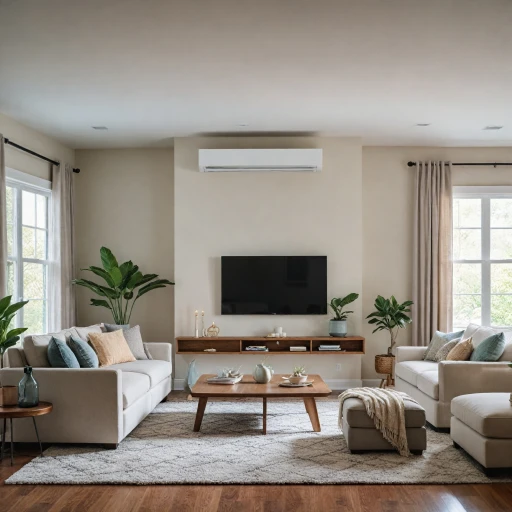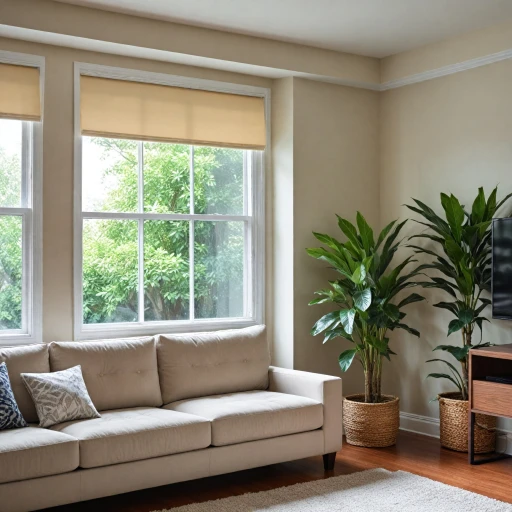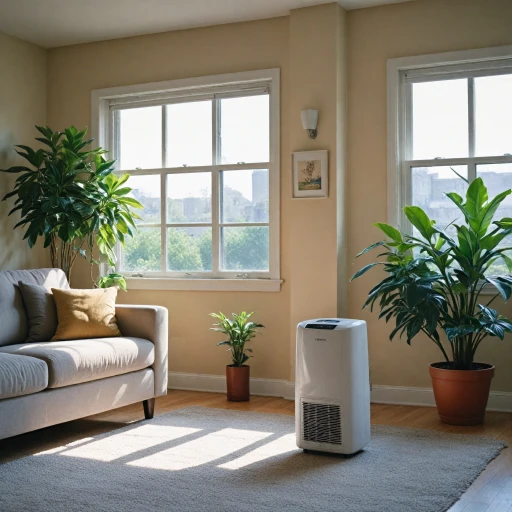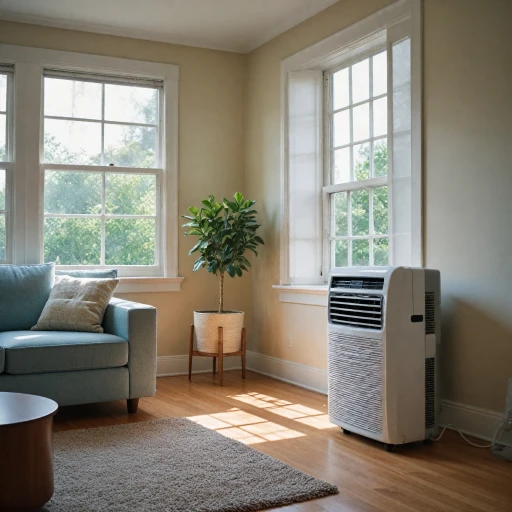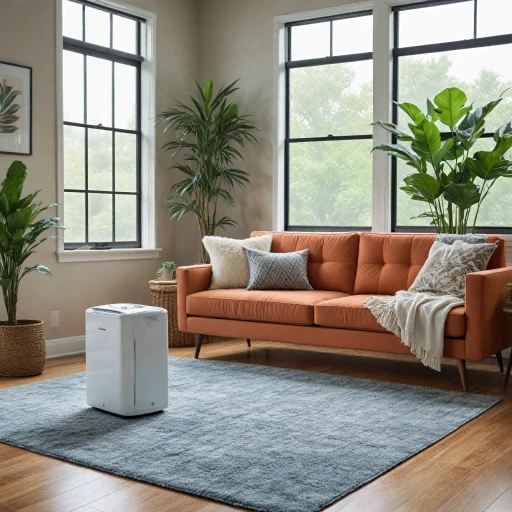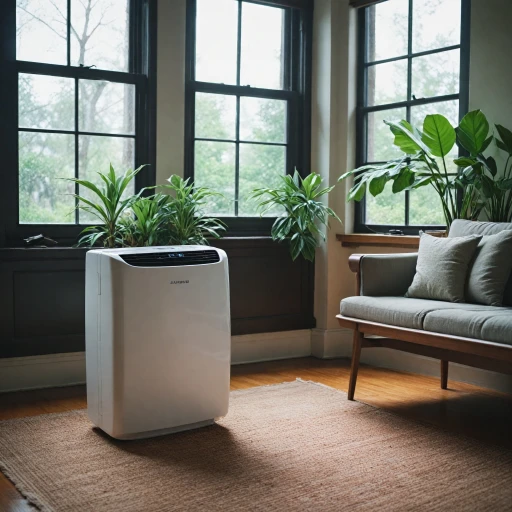
Understanding Commercial Portable Air Conditioners
The Basics of Commercial Portable Air Conditioners
Commercial portable air conditioners have become an essential solution for businesses seeking flexible cooling options. These models are designed to be moved easily from one location to another, providing cooled air whenever and wherever it's needed. Whether you're looking to cool a small office or an expansive warehouse, understanding the fundamentals of these units is crucial. Commercial portable air conditioners differ from their residential counterparts primarily in their cooling capacity, as they're engineered to handle larger spaces and more demanding environments. Characterized by their higher BTU (British Thermal Units) ratings, these units can deliver efficient cooling over larger areas. Commercial models like the MovinCool series are popular for their durability and effectiveness in cooling industrial settings. These portable air conditioners are ideal for various commercial applications, from climate-controlled office environments to maintaining equipment and worker safety in industrial settings. They are particularly advantageous due to their ease of installation, which involves minimal setup and no structural modifications, making them an attractive option for temporary applications or spaces without central air conditioning. Plus, many units come with features such as hassle-free installation and free shipping, which is often included in the sale price. For businesses in diverse climates, choosing the right model involves considering factors such as BTU capacity, which indicates how much space an air conditioner can cool effectively. For instance, a high BTU rating is essential for spaces that require intensive cooling, while smaller areas might require lower BTUs or even multiple units for optimal coverage. Balancing these needs against the price and potential shipping costs helps in selecting the right unit. If you're in the market for a commercial portable air conditioner, exploring the ultimate guide to air-conditioned tents might provide additional insights into the versatility and options available within this category. As you move through the sections, you'll find more detailed information on key features, sizing, installation, maintenance, and cost considerations to ensure you make an informed decision tailored to your business needs.Key Features to Look For
Essential Features for Commercial Portable Air Conditioners
When selecting the right commercial portable air conditioner for your needs, it's crucial to consider features that match your climate requirements and operational demands. Here are some vital aspects to focus on:
- BTU Rating: The BTU rating is pivotal in determining the cooling capacity of your portable air conditioner. A higher BTU ensures that the unit can successfully manage larger spaces. Understanding the effectiveness of a BTU portable model is essential for optimal performance.
- Portability: Look for units with sturdy casters and handles for easy transport across different locations. A ton portable air conditioner tends to be heavier, hence the importance of portability features.
- Cooling Technology: Modern commercial portable air conditioners often offer more advanced cooling technologies, such as the MovinCool and Climate Pro series, which add efficiency to your cooling needs.
- Dual Hose Configuration: Dual hose models typically provide more efficient cooling solutions by minimizing negative pressure in the room and promoting better airflow.
- Energy Efficiency: Energy-efficient models save on electricity bills and are equally environmental-friendly. They also ensure reduced operational costs over time.
- Noise Level: Consider models that operate quietly, especially if they will be used in environments where low noise is a priority.
- Free Shipping: Many retailers include free shipping as part of their price, making it more convenient and often more economical to purchase the air conditioner.
Choosing the right features in a commercial air conditioner is essential for managing climate control effectively, whether it's for industrial portable use or standard commercial cool needs. Prioritize these features when considering conditioners commercial for a well-cooled air space.
Sizing Your Portable Air Conditioner
Determine the Right Size for Optimal Cooling
Accurately sizing your portable air conditioner is crucial to ensure your space is efficiently cooled without wasting energy. Understanding British Thermal Units (BTU) is key, as it's the standard measure of an air conditioner's cooling power. The higher the BTU, the larger the area the unit can adequately cool.Understand the Impact of Climate and Space
When choosing a commercial portable air conditioner, consider both the climate and your specific cooling needs. For instance, in hotter climates or industrial settings like warehouses, a 14,000 BTU or higher rated portable air conditioner may be necessary. Conversely, cooler climates or smaller spaces might only require a lower BTU rating. If you're uncertain about whether a portable AC or a window AC is best for your needs, explore more through this helpful comparison guide.Calculate the Required BTU
To accurately size your commercial portable air conditioner, calculate the square footage of the area needing cooling. Here’s a simple guideline:- 8,000-10,000 BTU: Suitable for spaces up to 300 square feet.
- 12,000-14,000 BTU: Ideal for areas around 500-700 square feet.
- 16,000 BTU and above: Best for larger spaces exceeding 700 square feet.
Factor in Adjustments for Optimal Performance
Choosing a ton portable air conditioner that exceeds your necessary BTU rating can seem like a safe bet, but if it's too powerful, it might cool your environment too rapidly without reducing humidity, leading to a damp space. When assessing different models, pay attention to energy efficiency ratings and feature sets, such as dual-hose configurations for better ventilation, especially beneficial in commercial settings where pro series performance is desired. Considering these sizing factors along with key features will help ensure that you select a commercial portable air conditioner that not only meets your cooling requirements but also operates efficiently.Installation and Maintenance Tips
Setting Up and Maintaining Your Commercial Portable Air Conditioner
To get the most out of your commercial portable air conditioner, proper installation and regular maintenance are crucial. Here are some tips to ensure your unit operates efficiently and lasts longer:- Placement: Position your portable air conditioner on a flat, stable surface with adequate ventilation. Ensure there is enough space around the unit, especially near the air intake and exhaust. Avoid placing it in areas that block airflow, such as behind furniture or too close to walls.
- Exhaust Venting: Most portable air conditioners, including commercial models, require venting to expel hot air. Use the window kit designed for your model, such as those from the Climate Pro series, to ensure proper venting through a nearby window or another outlet.
- Electrical Requirements: Verify the electrical specifications for your unit. Some commercial units with higher BTU ratings might require a dedicated circuit due to increased power consumption. Check the manual for the correct power outlet and avoid using extension cords.
- Filter Cleaning: Clean or replace the air filter regularly to maintain optimal performance. Dirty filters obstruct airflow, reducing the cooling efficiency of your air conditioner. Many models indicate when a filter needs cleaning, but it's wise to check it regularly.
- Condensate Management: Portable air conditioners collect moisture as they cool. Depending on the climate and the unit's design, you might have to empty a condensate tank or connect a drain hose to manage water buildup effectively.
- Seasonal Storage: If you experience mild climates where the use of air conditioning is seasonal, consider storing the air conditioner properly. Clean it thoroughly before storage, cover it to prevent dust accumulation, and store it in a cool, dry place to avoid damage during off-seasons.
Cost Considerations
Budgeting for Your Commercial Portable Air Conditioner
When it comes to commercial portable air conditioners, understanding cost considerations is crucial for making an informed purchase. Different factors, from the model's features to the unit's cooling capacity, impact the overall expenditure.- Initial Price vs. Long-term Investment: While an industrial portable air conditioner might have a higher initial price, consider the cost-saving benefits over time. An efficient model can lead to lower energy bills and reduced maintenance costs.
- BTU and Tonnage: Remember that the cooling capacity, expressed in British Thermal Units (BTU) and tonnage, directly influences the price. Larger spaces require higher BTU units, which might increase your budget but are necessary to ensure adequate cooled air.
- Feature-Rich Models: Some models, like those in the Pro Series, offer advanced features such as programmable settings and enhanced filtering. These conditioners are typically priced higher but offer superior climate control and convenience.
- Shipping Costs: Factor in any shipping fees, especially if offered with free shipping during a sale. Weight and dimensions can affect shipping costs, particularly with larger, more robust conditioning units.
- Regular or Sale Price: Keep an eye out for promotions that offer the conditioner at a sale price, significantly lowering the regular price without compromising on quality. Buying during an off-peak season might also yield better deals.
Top Brands and Models
Leading Brands and Their Standout Models
When diving into the world of commercial portable air conditioners, several brands stand out as leaders in the field. These brands and their models offer various features suitable for different environments and cooling needs.
- MovinCool: Known for their industrial-grade solutions, MovinCool offers the Climate Pro series, renowned for providing reliable cooling performance in demanding settings. Their units often come with features like programmable settings and high BTU ratings, ideal for larger areas in need of climate control.
- Commercial Cool: As their name suggests, Commercial Cool focuses on powerful and portable solutions for businesses. Their line includes the Commercial Portable air conditioner, which is highly rated for its durability and efficiency in cooling vast commercial zones.
- Pro Series: This brand emphasizes cutting-edge technology and efficient cooling capabilities. Their models cater to those in need of both robust cooling and efficient energy use, often featuring high BTU ratings that denote significant cooling power and efficacy.
In evaluating these brands, focus on their BTU capacity, energy efficiency, and feature set, as these are critical elements highlighted in earlier assessments. The conditioning ton and how well a model integrates within the intended space can also influence your decision greatly.
Price is another factor that can vary widely by brand and model. Some units might come with a sale price or even offer free shipping, making them more attractive if budget constraints are a concern. On occasion, you might find units available at a price sale significantly lower than their regular price, so it's worth keeping an eye out for such deals.
Ultimately, the key to selecting the right commercial portable air conditioner lies in balancing the features and pricing with your specific cooling requirements, much like the approach taken in evaluating their installation or maintenance needs.

